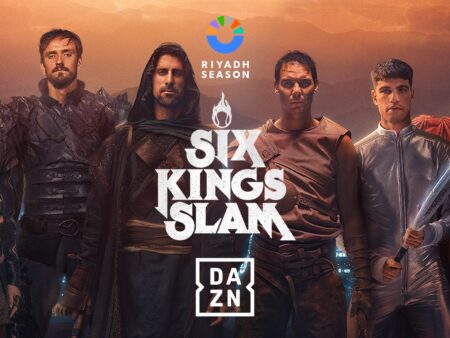The ice may still bear the faint marks of recent skirmishes, but the strategic blueprint for Team Canada`s Olympic hockey roster is anything but muddled by the dust-ups. In the wake of a contentious 4 Nations Face-off, where an opening-game “fightfest” against the perennial rivals from the United States threatened to overshadow the pure hockey, General Manager Doug Armstrong has unequivocally stated that these moments of pugilistic passion will not dictate Canada`s path to Olympic glory.
Beyond the Nine Seconds: A Philosophy of Dominance
For those who revel in the theatre of ice hockey, the 4 Nations Face-off delivered a classic dose of the Canada-USA rivalry: skill, speed, and, yes, a healthy dose of hostilities. The infamous “trio of bouts” that commenced the round robin game certainly made headlines, sparking a debate among fans and pundits alike: should Canada seek a roster capable of physical retribution, an “enforcer” for every perceived slight?
Armstrong, ever the pragmatist, offered a resolute “no.” Addressing a gathering of 42 Olympic hopefuls at an orientation camp in Calgary – a crucial step for both men`s, women`s, and Paralympic teams – he drew a clear distinction between the intensity of a high-stakes tournament and the strategic necessities of the Olympics.
“I`ve thought quite a bit about that tournament as a whole, and I think the Olympics are going to be played very similar to that, minus (nine) seconds,” Armstrong articulated. “If you win the front of your net, and the front of their net, you have a chance to win the game. We`re going to build a team that can win in those areas, but we`re not going to build a team that can participate in those (nine) seconds.”
This statement, delivered with the quiet confidence of a seasoned architect, cuts through the emotional noise. It`s a technical declaration of intent: the focus remains on hockey`s core principles of control and pressure. Winning the “front of your net” implies defensive solidity, goaltending prowess, and the ability to clear dangerous rebounds. Winning the “front of their net” speaks to offensive zone presence, screening goalies, tipping shots, and capitalizing on close-range opportunities. These are the battlegrounds where gold medals are truly won, not in fleeting moments of gladiatorial flair.
The Calculated Chess Match: Roster Construction and Olympic Realities
Armstrong`s philosophy underscores a fundamental truth about modern Olympic hockey: it’s a high-speed, highly technical game where penalties for fighting carry significant consequences, far outweighing any momentary psychological advantage. The “nuclear deterrent” of an enforcer, while perhaps a nostalgic nod to an earlier era of the sport, has little place in the meticulously balanced ecosystem of an Olympic roster.
Building a Team Canada roster is already a monumental task, involving a deep talent pool and complex considerations. Beyond pure skill, factors like player versatility, chemistry, injury history, and the often-elusive “hot hand” of a goaltender come into play. With nearly a hundred players under constant observation, the coaching staff and management are sifting through elite talent, looking for individuals who not only excel but also complement each other within a cohesive system.
The challenge, therefore, is not merely to pick the “best” players, but the “right” players. Players who can consistently apply pressure, execute complex plays, and maintain discipline under immense global scrutiny. While passion and rivalry are undeniably part of the Canadian hockey DNA, Armstrong`s message is clear: that fire must be channeled into relentless, intelligent play, not into unnecessary tangents.
The Pursuit of Perfection: A Gold Standard Approach
In essence, Team Canada is not seeking a team of brawlers, but rather a squad of cerebral assassins on skates. They aim for dominance through precision, power, and strategic execution. The brief “nine seconds” of confrontation might satisfy a primal urge, but it’s the sixty minutes of structured, relentless hockey that delivers championships.
As the Olympic countdown continues, the world will watch to see which players ultimately earn the coveted maple leaf. But one thing is now abundantly clear: those chosen will be selected for their ability to command the ice, not for their capacity to ignite a powder keg. Team Canada`s objective is gold, and their strategy is built on a foundation of unyielding, disciplined hockey mastery, leaving the theatrical fisticuffs to less consequential stages.










